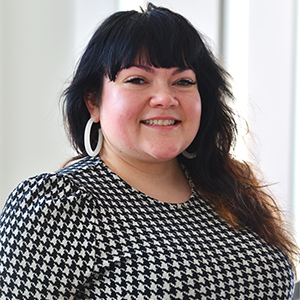Do you have a question about a transit project or want to know how you can get involved in decision-making, or want to contact the Metro Transit outreach coordinator who serves your community? We’ve pulled together resources to get you started.
Building relationships
Metro Transit recently restructured its outreach department to focus on building relationships with communities by assigning one outreach coordinator to each geographic area. Your designated outreach coordinator can:
-
Connect you to transit resources
-
Engage residents and businesses on transit improvement projects such as the METRO B Line, D Line or E Line, METRO Green Line Extension or the METRO Blue Line Extension
-
Keep people informed about the status of projects, especially construction activities
-
Help promote programs such as Better Bus Stops, Adopt a Shelter, Troubled Shelters, and Transit Assistance Program for reduced fares
-
Attend community meetings for two-way conversations about transit services and projects
-
Respond to comments and questions within one week
-
Build partnerships with local organizations and groups in communities we serve
-
Prepare people on how to ride transit, pay their fares or use our information tools

Area: Dakota County, Washington County and Ramsey County cities within the transit service area, Capitol area, downtown St. Paul

Area: North Minneapolis, Robbinsdale, Crystal, Brooklyn Park and Brooklyn Center, Champlin, Anoka and Ramsey, and Lake Minnetonka area
Projects: D Line, Brooklyn Center Transit Center, Northtown Transit Center

Area: Downtown Minneapolis, University of Minnesota area, northeast Minneapolis, and Anoka County communities served by transit
Projects: E Line

Area: South Minneapolis east of I-35W; St. Paul between I-94 and the Mississippi River, east sides of Bloomington and Richfield
Projects: D Line and
B Line outreach lead

Area: St. Paul and Maplewood areas served by planned METRO Gold Line, Oakdale, Landfall, and Woodbury
Projects: METRO Gold Line and
METRO Purple Line outreach lead
Community Outreach Map 2020
Light Rail Transit Extension Projects
For questions or information about the Southwest LRT project (METRO Green Line Extension), contact the outreach coordinator that serves your community.
For general questions about the METRO Blue Line Extension project, contact Sophia Ginis, Manager, Outreach at: Sophia.Ginis@metrotransit.org
Current Projects
Metro Transit is committed to engaging the community, compiling the information we receive and reporting back on what we heard and how we are using what we learned from you. The following are recent or current engagement projects along with a summary of engagement activities and public comments.
Network Next Engagement
We're currently seeking input from the communities we serve to help narrow the list of potential Bus Rapid Transit (BRT) lines to the top three corridors by the end of the year. More information about Network Next.
Metro Transit staff will provide a variety of opportunities for the public to weigh in on which potential BRT lines they’d use and to provide ideas on how BRT could best serve these corridors. This information will be used to select and prioritize the top three corridors. More information and how to submit comments.
Listening and Learning through Crisis
In August 2020, Metro Transit conducted listening sessions to understand how our riders and the communities we serve have been affected by recent crises. Metro Transit staff went out into the community and listened to our customers and communities served by our core routes about how this year has changed their transit needs and priorities. We did this through online surveys, in-person conversations with customer at bus stops and stations, social media, mask distribution events, and Transit Assistance Program sign-ups.
The information we gathered will inform near-term service decisions and shape future public engagement efforts. Here are two summaries of our engagement process and what we heard:
You can look at the data yourself using this analysis and graphing tool:
Additional community resources